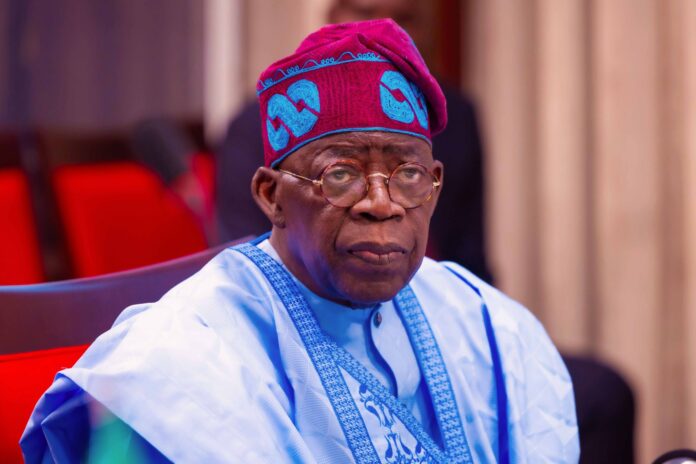By Adeyemi Adekunle | Abuja
President Bola Ahmed Tinubu has assured Nigerians of a stronger and more functional economy as his administration’s reforms continue to deliver tangible results. The president made this assertion on Wednesday while presenting the 2025 Appropriation Bill to a joint session of the 11th National Assembly in Abuja.
In his address, President Tinubu expressed confidence in the positive trajectory of Nigeria’s economy, attributing recent growth to targeted fiscal policies and structural reforms implemented under his leadership. He emphasized that his government remains steadfast in its commitment to economic revitalization, stating, “I report today that our economy is responding positively to stimulus.”
The president underscored his administration’s strategy to further stimulate economic growth through “targeted fiscal stimulus packages, public expenditure, and specific non-inflationary spending.” According to him, the current economic direction is irreversible, and Nigerians will soon witness the full impact of these measures.
Highlighting global economic trends, Tinubu noted that while global economic growth for 2023 was pegged at 2.0 percent, Nigeria defied earlier projections and achieved a growth rate of 3.46 percent. “For 2024, global projections stood at 3.2 percent, but contrary to predictions for our country, we have made significant progress,” he said.
The president emphasized that reforms implemented in the 2024 fiscal year have laid a solid foundation for the proposed 2025 budget. These initiatives, according to Tinubu, are critical to addressing longstanding economic challenges and building resilience in key sectors.
“Our objective remains clear: we aim to foster inclusive economic growth that ensures prosperity for all Nigerians. The groundwork we achieved in the 2024 budget has positioned us to consolidate on these gains in the year ahead,” Tinubu stated.
The president’s presentation comes at a time when Nigerians have been grappling with rising inflation, unemployment, and the effects of subsidy removal. However, Tinubu’s remarks offered renewed hope for economic stability, particularly as his administration aims to focus on non-inflationary spending and public investments to drive sustainable growth.
The joint session of lawmakers responded with mixed reactions, reflecting both optimism and the urgency for the administration to translate policies into measurable economic improvements. While critics have continued to question aspects of Tinubu’s reforms, Senate President Godswill Akpabio defended the administration’s policies, noting that the tax reforms and fiscal measures were often misunderstood.
As Tinubu assured Nigerians of better days ahead, analysts say the success of the 2025 budget will largely depend on its implementation and the government’s ability to address pressing economic concerns. Nonetheless, the president’s message was clear: his administration remains committed to steering the nation toward economic recovery.
With Nigeria’s economy projected to further improve in 2025, Tinubu’s assurances signal a renewed focus on reforms designed to create jobs, stabilize the naira, and attract investments into critical sectors. As Nigerians await the full rollout of these measures, the president’s speech marks a pivotal moment in his administration’s economic roadmap.
The 2025 Appropriation Bill, when passed, will offer more clarity on the administration’s priorities and its commitment to ensuring a robust economic turnaround for Africa’s largest economy.




